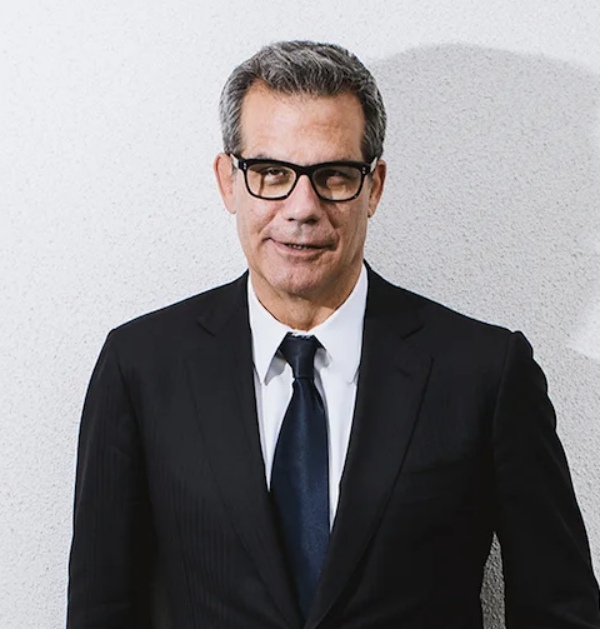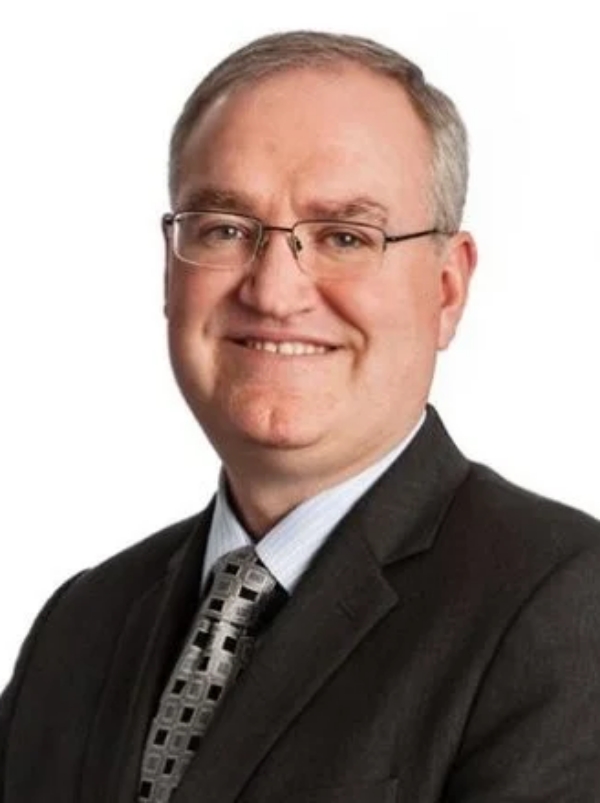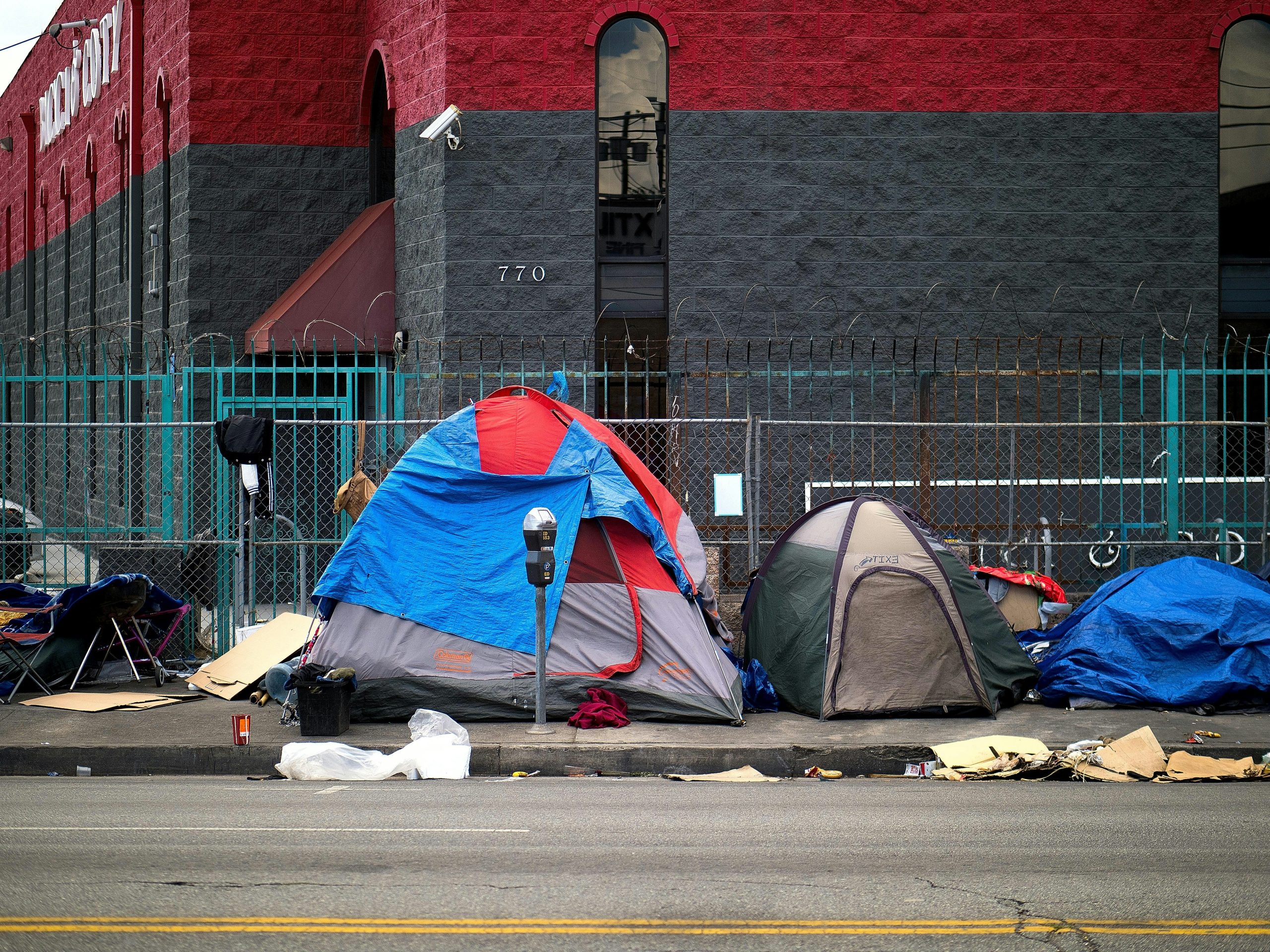Featured Guest
You’ll find this guest among our growing roll of Urban Champions.
-

Richard Florida
Professor, Economic Analysis and Policy, Rotman School of Management
-

Richard Barkman
Global Chief Economist, Head of Global Research & Head of Americas Research, CBRE
-

Craig Alexander
Chief Economist & Executive Advisor, Deloitte
5 Key
Takeaways
A roundup of the most compelling ideas, themes and quotes from this candid conversation
1. Cities will survive – but the office as we know it will not come back.
Cities have survived many shocks throughout history. The pandemic marks a great reset, but cities will survive. Two types of factors are shaping how and where we live: “pull” factors are drawing some people out of downtowns, while “push” factors are concurrently attracting others to central areas. Reimagined downtowns will have more integrated live-work neighbourhoods with more social and recreational functions. Physical office space will still be critical as an arena for social interaction and for onboarding new talent. There will be increased demand for coworking spaces in suburban areas as some employers pursue a “hub and satellites” model.
2. The time employees spend in the office will decline and this will affect downtowns – but the demand for space is affected by several factors.
Downtowns have been challenged by the effects of Covid-19, as centrifugal forces draw people and economic activity outwards. Stagnant rental rates and elevated vacancy will likely endure for some time, and this will affect downtowns. The amount of time that employees spend in physical office locations each week will drop compared to pre-pandemic — but this will not translate into a one-to-one decrease in the demand for office space. There may be a de-densification effect where more space is allocated per employee compared to the pre-pandemic office configuration. Employers may also plan for occasions such as teambuilding events when many employees might be in the office at the same time.
3. The crisis is a catalyst to chart a course for future prosperity.
The economic contraction brought on by Covid-19 is much more severe than previous downturns. The impacts are uneven: larger cities have been hit harder than smaller cities, lower-paid workers have been more affected by job losses, and the impact has not been uniform across industries. Pre-pandemic, Canada’s economic outlook was tempered by weak investment. As health risks diminish, there is potential for a strong recovery, which can put the country on a new trajectory for future prosperity. Cities will be a crucial part of the recovery.
4. Signs point to the potential for a strong recovery.
Government transfers supported households and helped to maintain consumer confidence during 2020. The level of collective savings of Canadian households increased significantly during the pandemic, and pent-up demand could help fuel a strong economic recovery. There is an opportunity to build our downtowns back better. A “Roaring 2020s” decade may lie ahead – however it will be crucial to mitigate and redress inequalities as this unfolds.
5. Policy is required for downtowns to come back in a way that is more inclusive.
Without intentional policy choices, the risk is that future downtowns could end up being more exclusive than the pre-pandemic condition. It is unproductive to frame the argument in terms of economic growth versus equity: growth and equity are both necessary and can be compatible. Institutional investors could deploy capital towards affordable housing if governments can create the policy to support it.
Additional Resources
Full Panel
Transcript
Note to readers: This video session was transcribed using auto-transcribing software. Manual editing was undertaken in an effort to improve readability and clarity. Questions or concerns with the transcription can be directed to events@canurb.org with “transcription” in the subject line.
Full Audience
Chatroom Transcript
Note to reader: Chat comments have been edited for ease of readability. The text has not been edited for spelling or grammar. For questions or concerns, please contact events@canurb.org with “Chat Comments” in the subject lin
From Canadian Urban Institute: You can find transcripts and recordings of today’s and all our webinars at https://canurb.org/citytalk
00:33:16 Gina Lewis – CUI: Welcome! Folks, please change your chat settings to “all panelists and attendees” so everyone can see your comments.
00:34:05 Dawn Pond: Hello from Peterborough Downtown Business Improvement Area’s Downtown Vibrancy Project!
00:34:21 Gina Lewis – CUI:
Craig Alexander, Chief Economist & Executive Advisor, Deloitte Canada https://www.linkedin.com/in/craig-alexander-9ba7b978/
Craig Alexander is the first Chief Economist at Deloitte Canada. He has over twenty years of experience in the private sector as a senior executive and leading economist in applied economics and forecasting. He performed macroeconomic research, regional and sector analysis, and fiscal market forecasting and modelling.
Richard Florida, Professor, Author, Urbanist https://www.linkedin.com/in/richardflorida/
Richard Florida is a leading researcher, author and speaker. He is also a University Professor at the University of Toronto’s School of Cities and Rotman School of Management, Co-founder of CityLab, and Founder of the Creative Class Group. He is the author of The Rise of the Creative Class, Flight of the Creative Class, Who’s Your City?, The Great Reset, and The New Urban Crisis.
00:34:22 paul mackinnon: Hello from Downtown Halifax!
00:34:26 Kellie Grant: Good morning from Saskatoon
00:34:27 Kieron Hunt: Greetings from Downtown Halifax, Nova Scotia!
00:34:28 Brad Krizan: Hello from Calgary, a city who’s downtown is in desperate need of a major reboot!
00:34:34 Linda Weichel: Hello from downtown Toronto!
00:34:36 Christina Sisson: Hello from the City of Kawartha Lakes! We are actively working to revitalize two of our downtowns – Fenelon Falls and Lindsay!
00:34:38 Gina Lewis – CUI:
Richard Barkham, Global Chief Economist, CBRE https://www.linkedin.com/in/richardbarkham/
Richard Barkham is a specialist in macro and real estate economics. He joined CBRE in 2014 as Executive Director and Global Chief Economist. Richard is the author of two books and numerous academic and industry papers. In 2012 he published ‘Real Estate and Globalisation’ (Wiley Blackwell, Oxford), which explains the impact on real estate markets of the rise of emerging markets such as China and Brazil. He has extensive consulting experience and is a Visiting Professor in the Department of Construction and Project Management at the Bartlett School, University College London.
00:34:40 Evangeline Sadler: Hi from Montreal and Policy Options at the Institute for Research on Public Policy.
00:34:43 Jacquie Severs: Good morning from Durham Region! Durham is home to 14 downtowns and main street areas. www.downtownsofdurham.ca
00:34:51 Angie Weddell: Hi from the City of Vancouver!
00:34:55 Robin McPherson: Hello from downtown St. Catharines.
00:35:03 P Reddy: Hi, All, from Durban in South Africa.
00:35:09 Dawn Alan: Hi from Downtown Charlottetown!
00:35:10 Susan Brown: Hello from Economic Development and Culture at the City of Toronto!
00:35:17 Harriet Stanford: Good morning from Fort St. John, BC!
00:35:19 Lori Girvan: Bonjour de Gatineau, traditional unceded territory of the Algonquin – Anishnaabeg peoples
00:35:33 Chelsea Whitty: Hello from Edmonton, AB
00:35:35 Gina Lewis – CUI: You can find transcripts and recordings of today’s and all our sessions at https://www.canurb.org/citytalk
00:35:52 Katherine Danks: Good morning from TO
00:35:57 Gina Lewis – CUI: Keep the conversation going #restorethecore #bringbackmainstreet #citytalk @canurb
00:35:58 Patrick Martins: Good Morning from Edmonton, AB.
00:36:12 Shant Karabajak: Hello, from Montréal. 🙂
00:36:13 Lisa Hoffman: Bon matin from Montréal!
00:36:18 Dru Mohler: Good morning from Calgary AB
00:36:20 John Jung: Thanks to CUI for continuing to provide thought leadership in this urban space, especially as we are looking forward to a post-covid world..
00:36:23 Mark Garner: Hello from Downtown Toronto
00:36:27 Gina Lewis – CUI: To support CityTalk and the Canadian Urban Institute’s other city building initiatives, please donate at www.canurb.org/donate.
00:36:51 Sue Uteck: hello from Halifax! the best coast!
00:37:00 Bliksem Tobey: Good morning from New York.
00:37:02 Alan McNair: Greetings from Barrie ON
00:37:19 Fernando Cirino: Hello from Windsor
00:37:44 Nancy Tissington: Hello from Saint John, New Brunswick from UPTOWN!
00:37:50 Judy Lam: Greetings from Hamilton Economic Development – home to 13 BIA’s.
00:37:51 Richard Florida : Good morning everyone!!!!!
00:37:53 Gina Lewis – CUI: Our next session begins at 12pm and is on the future of downtowns and central business districts around the world. Speakers include Greg Clark, Global Head, Future Cities & New Industries, HSBC Group, London UK; Gabriella Gomez-Mont, Founder and Principal, Experimentalista, Amsterdam NL; Alicia John-Baptiste, President & CEO, SPUR, San Francisco CA; and Abha Joshi-Ghani, Senior Adviser, Public Private Partnerships, The World Bank, Washington, DC. Register for this session here: https://us02web.zoom.us/webinar/register/WN_vdxY1WTTTwyy_GN9UzrcUA
00:38:31 Yurij Pelech: Greetings from Bessant Pelech Associates Inc (Mississauga ON) Development Planning + Project Management Consultants and Gerontology & LTC Consultants
00:38:35 Annie MacInnis: Hi from Annie, Kensington BIA ,Calgary
00:39:12 Augusto Mathias: Sao Paulo – Brazil
00:39:56 Diane Dyson: Use the hashtags to share on social media: #RestoreTheCore #BringBackMainStreets #CityTalk
00:40:48 Gina Lewis – CUI: You can find transcripts and recordings of today’s and all our sessions at https://www.canurb.org/citytalk
00:41:26 Diane Dyson: Eeek: Correction #BringBackMainStreet
00:43:37 Richard Florida : For sure you can have mine. Email is florida@creativeclass,com and copy reham@creativeclass,com.
00:43:50 Richard Florida : Easier to grab at the CUI site!
00:45:43 Gina Lewis – CUI: These slides will be shared at https://www.canurb.org/citytalk
00:51:46 Brad Krizan: Interesting where Arts & Culture lands on that chart…in comparison to municipalities seeing it as key to economic impact
00:52:20 Richard Florida : Yep. Our estimates for the US is 50% unemployment in arts and culture. FIFTY PERCENT!
00:53:28 Gina Lewis – CUI: We love your comments and questions in the chat! Share them with everyone by changing your chat settings to “all panelists and attendees”. Thanks!
00:54:16 Gina Lewis – CUI: You can find transcripts, presentations and recordings of today’s sessions at https://www.canurb.org/citytalk
00:55:31 Chris Fraser: Is it remote work – or roam work or roam offices (be they home, office or other)?
00:56:26 Brad Krizan: Not sure we need to make immigrants moving into downtown cores key to the success of downtown cores. That seems like a default strategy. Downtown’s need to be seen as a community for all, immigrants and naturalized Canadians alike
00:57:03 UR1: Agreed Brad
00:57:30 Dawn Pond: Thank you Craig!
00:57:52 Brian Gordon: Very informative Craig!
00:57:57 Marcy Burchfield: Here’s a template for Toronto Region’s regional recovery playbook that Craig & colleagues from Deloitte and Richard contributed to and partnered with the Toronto Region Board of Trade https://www.bot.com/Portals/_default/RR_WorkTrack4.pdf
00:58:06 Shahinaz Eshesh: Thank you Craig! Great overview
00:58:12 UR1: Thanks Craig
00:58:23 David Low: Hi everyone, David Low, Vic Park YYC
00:58:47 Shant Karabajak: Will the decks be available as well?<
00:59:03 Craig Alexander: Yes, decks are available
00:59:08 Canadian Urban Institute: You can find transcripts, presentations and recordings of today’s sessions at https://www.canurb.org/citytalk
00:59:32 Mary W. Rowe: everything at www.canurb.org – it’ll all be there 🙂
01:00:36 Ted Tsiakopoulos: We need to ensure we can house all the new immigrants so a holistic approach is extremely important moving forward
01:01:50 Jayne Engle: Craig —Appreciate looking at GDP and conventional econ measures, however metrics that are not enough at the fore — eg massive climate risks, health and wellness measures for people and ecosystems, etc. Consumer spending driving ever extractive economic growth using same patterns and metrics is not going to drive transformative change to build equitable, regenerative cities. You say we need growth, but do you mean just GDP — how about growth of equality, growth of community resilience, of social capital, of mental wellness?
01:03:11 Dustin Poole: Hi everyone, Dustin Poole, The GO Technology Foundation / Vic Park YYC
01:06:27 Hamish Campbell: Need to be careful about use of terms “cities” and “urban cores”. For example, Hamilton and Kitchener in Canada and plenty of midsize cities in the US are cities in their own right with their own urban cores. They offer all the amenities of larger urban centres that Richard Florida just described with a lower cost of living and more housing choice.
01:06:48 Brad Krizan: Remote work isn’t just a perk though, its also an opportunity for people to better balance elements of their personal lives. Speaking as a parent, it does give me more flexibility to balance family and work than previous rigid workplace policies had allowed. This should be seen more as a balancing factor.
01:07:02 Kieron Hunt: There is a taxable benefit (mortgage and utilities write-offs) if a person can work from home 50% of the time or more, which allows for many hidden economic benefits for possible employees.
01:07:45 Marcy Burchfield: Love that statement—office as an arena for social interaction
01:13:50 Kay Matthews: applause!
01:13:58 UR1: Thanks Richard, very interesting
01:14:13 Brad Krizan: I’m not sure we can draw a parralell to the Roaring 20’s. This may be a reverse trend…maybe the rise of the suburbs? How do we look at relevant data…or do forward analysis that helps us understand where this may go. Bigger question is, will it be organic or are all levels of government hoping to ‘steer’ this?
01:14:58 Stacey Litwin-Davies: Hello from Stacey Litwin Davies from Litwin Davies Ltd. consultants, advisors, advocates and research on work, workplace and business transformation
01:15:34 Gina Lewis – CUI: Reminding attendees to please change your chat settings to “all panelists and attendees” so everyone can see your comments.
01:16:00 Brent Penner: Curious what city governments will do if we see such a decline in working numbers in our city centres….devastating for transit ridership, and overall tax assessment on what used to be the highest paying properties will diminish – how will cities make up this revenue….
01:16:46 Voncelle Volté: ⚡ Everything they said is happening in the United States, as well. Look at Texas …
Indeed, we have a lot of work to do, as Global Citizens towards meeting #SDGs in a post-COVID world.
01:18:42 paul mackinnon: If commuting to CBD decreases, why would costs fall?
01:19:07 UR1: @Brent P, yes, and the tax shift from business to households for this reason
01:20:13 paul mackinnon: Oh, see. The “cost” of commuting being time, not the cost of providing it.
01:21:05 Marcy Burchfield: Question: what are the qualities of a downtown that would make it more resilient? For example, what’s the magic the mix of activities that will make some downtowns more attractive than others. Pre-pandemic TO downtown was on fire partly because of the clustering of high growth knowledge base sectors and innovation hubs–universities, research incubators, SME accelerators and lots of cultural & entertainment options. And lots of residential mix to keep the DT open past 5pm.
01:21:36 P Reddy: What is going to happen to all those high rise office blocks and the coffee shops that rely on them for business ?. How will this impact on the rates base of cities ?. I have been working from home – it has worked very well and there has been savings. I would not mind continuing in this mode. However, what will be the overal impact on the local and national economy. ?
01:21:57 paul mackinnon: Historically, cities have been able to use the tax base of the dense downtown to subsidize suburban living. If CBD tax base decreases, won’t that drive UP the cost of suburban living rather dramatically? Or will cities need to fundamentally change how they are funded?
01:23:47 P Reddy: Should more residential blocks be built downtown ?
01:26:10 UR1: @Marcy B. I think the value of downtown will be in creating “a neighbourhood” as Richard was talking about in his presentation. Building a central area that is curated to a specific industry/business need.
01:27:45 Marcy Burchfield: Downtown are typically an amalgam of neighbourhoods
01:28:49 Kay Matthews: The mall was never created as just consumer driven, but that is what it has become. It is and cannot be a “Complete Community”.
01:30:11 Lori Girvan: Recovery is an opportunity to transform narrow use-based zoning regimes and corollary (and distorted) property tax systems – in Toronto we lost cultural and commercial spaces unable to pay taxes based on highest and best use valuations as condo redevelopments. So there is residential in our downtowns but it is in accessible to workers in health, service, hospitality and retail sectors.
01:30:19 Marcy Burchfield: @UR1 Many of the suburban regional centres are replicating that model of an amalgam of neighbourhoods.
01:30:51 Hamish Campbell: Curious to know if the panelists think midsize cities will gain tenants from office loss in large city CBDs? For example, in the Greater Toronto context, midsize cities like London, Kitchener and Hamilton have relatively high office vacancy rates. Might Toronto’s loss be their gain (particularly given that the data suggests these midsize cities are seeing the biggest population inflows)
01:30:59 paul mackinnon: It would be really useful to separate out food/beverage from purchased goods in broad retail category. These industries have been impacted very very differently.
01:30:59 Mike Williams: Be interesting to hear what the panelists think of the powers of agglomeration that have so far driven big city and big downtown growth and whether that will be stronger than the factors discussed by the two Richard’s. Also, if flight is a big risk, why are housing prices going crazy in Toronto right now? Is it just interest rates?
01:31:36 UR1: yes, will be interesting to see how competitive the downtown investors become to offset the suburban shift.
01:31:37 Robert Plitt: Are we thinking long term enough? Does anyone imagine someone sitting on the 50th floor working in an office in 30 years?
01:32:25 Marcy Burchfield: @Mike Williams Bingo! Question: what are the qualities of a downtown that would make it more resilient? For example, what’s the magic the mix of activities that will make some downtowns more attractive than others. Pre-pandemic TO downtown was on fire partly because of the clustering of high growth knowledge base sectors and innovation hubs–universities, research incubators, SME accelerators and lots of cultural & entertainment options. And lots of residential mix to keep the DT open past 5pm.
01:33:19 Kellie Grant: I think that the downtown has the potential to be the best Complete Community but downtowns need to vastly increase housing in a larger variety of forms. Currently our downtown is upscale condos, low income housing a few townhouse type buildings and a variety of apartment buildings.
01:33:42 Kellie Grant: Also without a grocery store it cannot be successful.
01:33:45 UR1: Do you see the arts strengthening?
01:34:26 Philip Stewart: Are GTA municipalities planning for enough ‘logistics’ space – lands, over the next five years, as predictions indicate a need for some additional 2,000 acres or 800 ha. of land to serve this need?
01:34:30 Mary W. Rowe: ok gang let’s expose our video’s and join Richard
01:34:41 UR1: that’s a good one!
01:34:52 Cherise Burda: Main street retail, music venues, hospitality were already nose diving before COVID, due to many factors, including HABU. So remember the condos were built on the loss of these shuttered local biz, and condos marketed the street life of the neighbourhood for purchasers. With influx of rcondo residents, local biz recovery could revoker, but which ones and how?
01:35:09 Cherise Burda: Question for Richard (and others): What do you think is the role of downtown universities in recovery of downtowns? How can universities effectively work with their downtown neighbours (businesses, etc) to optimize campus and neighbourhood recovery?
01:35:13 UR1: Best time spent this year!
01:35:30 Dawn Pond: Thank you all, a very interesting 75 minutes!
01:36:01 Kay Matthews: How do you think suburbs can be redesigned to create complete communities?
01:36:50 Brad Krizan: So, let’s make sure Canadian Urbanism doesn’t inadvertently import the problems associated with US urbanism!
01:37:06 Robert Plitt: Are there any signals that commercial real estate sector are working together for better social outcomes ? Or is the focus on competition to win tenants?
01:37:55 David van Hemmen: “The rise of downtown disorder” would be an accurate characterization of what many are feeling in Vancouver
01:38:09 Alan McNair: What does Richard Barkham mean by “Affordable” housing?
01:38:30 Brad Krizan: Great question…Commercial Landlords do need to start thinking about creating ‘community’ within their buildings…while also balancing the competition amongst each other for revenue (ie., tenants)
01:39:20 Dustin Poole: @BradKrizan 100%!!
01:40:18 Robert Plitt: Its about time!
01:40:28 Marcy Burchfield: @bradkrizan–what’s the obstacles to adding childcare into commercial buildings
01:41:05 Brad Krizan: The obstacle Mary is really asset managers and proforma/excel analysis IMHO
01:41:46 Brad Krizan: (sorry, Marcy…not Mary)
01:41:59 Dustin Poole: There needs to be a focus on regenerative systems, and not just from a money perspective. We need to integrate education, community interaction, resource management, energy production
01:42:03 Voncelle Volté: ⚡ CBD are not designed to be “inclusive” and have become functionally obsolete by Blind Spot. Their focuses were on Leasing and Sales, not Charity. However, Team London Bridge understands the 360° needs of Tenants, Landlords, Shoppers, and the Environment.
01:42:04 Merrilees Willemse: Municipalities rely on commercial tax revenue – how do we manage through this drop?
01:42:06 Marcy Burchfield: @bradKrizan what if gov incents it?
01:42:07 Gina Lewis – CUI: You can find transcripts, presentations and recordings of today’s and all our sessions at https://www.canurb.org/citytalk Keep the conversation going #restorethecore #bringbackmainstreet #citytalk @canurb To support CityTalk and the Canadian Urban Institute’s other city building initiatives, please donate at www.canurb.org/donate.
01:42:19 Brad Krizan: Very blunt answer on jobs Richard…appreciate the candor
01:42:40 Annie MacInnis: universal income?
01:43:12 Dustin Poole: @MarcyBurchfield what if local nonprofits incent it?
01:43:28 Brad Krizan: Good point Marcy, not hard to adjust the assessment of those spaces as one lever municipally. Likely other levers could be implemented too…BUT, govt’s tend to not be very creative, nor do asset managers
01:43:32 Gina Lewis – CUI: Craig Alexander, Chief Economist & Executive Advisor, Deloitte Canada https://www.linkedin.com/in/craig-alexander-9ba7b978/ Richard Florida, Professor, Author, Urbanist https://www.linkedin.com/in/richardflorida/ Richard Barkham, Global Chief Economist, CBRE https://www.linkedin.com/in/richardbarkham/
01:43:40 Steven Mastoras: In Toronto, #bringbackmainstreets is only achievable with broader planning measures allowing property owners higher densities. Any suggestions on battling NIMBYism with broader provincial zoning for avenues?
01:43:44 Merrilees Willemse: logistics, delivery, personal health care
01:44:16 Marcy Burchfield: @bradkrizan–gov just has to incent, not operate. That’s where the NFP come in
01:44:31 Gina Lewis – CUI: Our next session begins at 12pm and is on the future of downtowns and central business districts around the world. Speakers include Greg Clark, Global Head, Future Cities & New Industries, HSBC Group, London UK; Gabriella Gomez-Mont, Founder and Principal, Experimentalista, Amsterdam NL; Alicia John-Baptiste, President & CEO, SPUR, San Francisco CA; and Abha Joshi-Ghani, Senior Adviser, Public Private Partnerships, The World Bank, Washington, DC. Register for this session here: https://us02web.zoom.us/webinar/register/WN_vdxY1WTTTwyy_GN9UzrcUA
01:44:41 Stacey Litwin-Davies: in person retail is not going to be necessarily about buying, but entertainment….think leisure and entertainment and bricks and mortar retail still may have purpose….how that will be reinvented will be interesting
01:44:59 Dustin Poole: @BradKrizan & @MarcyBurchfield nonprofits are way more creative and flexible on how they can operate
01:44:59 paul mackinnon: Any appetite for location-efficient mortgages? Are any places doing that, to ensure downtown workforce can live closer to downtown?
01:45:11 Lisa Hoffman: Ubi!
01:45:22 Suzy Godefroy: Great discussion! TY! How do we drive policy to recognize that our downtowns are an essential community service and need more support and more investment from all levels of government?
01:45:35 Dustin Poole: UBI for sure!
01:45:41 Brad Krizan: Totally agree Marcy. Issue is Landlord’s underwrite tenants based on financial covenant, not intangibles of amenities and services and creating a tenant ‘community’. Their thinking needs to change.
01:46:05 Voncelle Volté: ⚡ North American CRE-Office is designed to be patriarchal, when Leasing is the Business Model. That’s why women have yet to #LeanIn in Traditional CBD.
01:46:25 UR1: I wonder if universal income is sustainable. Greece comes to mind.
01:46:46 paul mackinnon: Why is there a consistent lack of attention on downtowns from fed and prov governments? Is it just because of political considerations? What do we need to do to change this?
01:47:02 Brian Gordon: Great discussion!
01:47:05 UR1: Loved this presentation!
01:47:06 Voncelle Volté: ⚡ Thank you, for hosting this conversation. 🌻🌻🌻
01:47:19 Brad Krizan: Thanks everyone, great start, great energy, great discussion!
01:47:26 Théa Morash: Thank you everyone!
01:47:29 Richard Florida : Any questions email me: florida@creativeclass.com
01:47:30 Julie Bourgoin: Great, intelligent, mindbending session! Thank you!
01:47:31 paul mackinnon: Richard, we’ll bring you a Halifax donair, once travel restrictions end!
01:47:31 Eleena Marley: Awesome discussion all – thanks!
01:47:36 Suzy Godefroy: TY again!!! RESTORE THE CORE!
01:47:37 Francois Duchastel: indeed, some report came out last week showing that the 50 (Fifty! ) richest individual in the US own the same as the top 60% !!! of lower income individual in the country….so it seems the money is there….somewhere
01:47:38 Robert Plitt: Awesome session!
01:47:39 Cherise Burda: fantastic thanks!
01:47:39 Dustin Poole: if anyone wants to discuss further feel free to email me at dustin.poole@gotechfoundation.com



